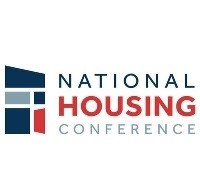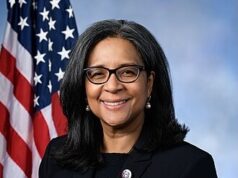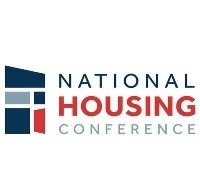President Biden and Connecticut Congressional Delegation Announce Nearly $9 million in Brownfield Grants to Rehabilitate and Revitalize Communities
Hartford, CT – RealEstateRama – Members of the Connecticut Congressional Delegation joined President Joe Biden and the U.S. Environmental Protection Agency (EPA) to announce $8,966,240 in grant awards from the Bipartisan Infrastructure Law to expedite the assessment and cleanup of brownfield sites in Connecticut while advancing environmental justice. These investments will help transform once-polluted, vacant, and abandoned properties into community assets, while helping to create good jobs and spur economic revitalization in overburdened communities.
“Far too many communities across America have suffered the harmful economic and health consequences of living near polluted brownfield sites,” said President Joe Biden. “I’ve long believed that people who’ve borne the burden of pollution should be the first to see the benefits of new investment. Under my Administration, we are making that a reality by ensuring the historic resources from my Investing in America agenda reach communities that need it most. I am proud that my Administration is helping Philadelphia clean up and transform this area into an economic engine, while tackling a longstanding environmental injustice and creating good-paying jobs.”
“Today’s announcement will help improve community health, support economic revitalization, and advance environmental justice efforts across our state,” said Rep. John B. Larson. “I am proud of the work the Connecticut Congressional Delegation has done to deliver key funds from the Bipartisan Infrastructure Law to support brownfield remediation. Everyone deserves to live in a healthy environment, regardless of zip code, and these projects will create good-paying jobs while protecting the health and safety of our communities.”
“Great to see another $500,000 investment from the federal infrastructure law coming to eastern Connecticut to begin revitalizing blighted land in Stafford’s downtown area and the Staffordville neighborhood. Approval of this grant is a true testament to the Town’s eagle eye focus on securing funds to support economic and community development,” said Rep. Joe Courtney. “There’s no question that the federal infrastructure law is turbocharging investments to transform polluted land to economic hubs. This new round of funding brings the total investment for brownfield grants in CT-02 to over $9 million through the federal infrastructure law in just three years.”
“The $1.5 billion investment in the EPA’s brownfield grant programs announced today, made possible by the Bipartisan Infrastructure Act, which I was proud to vote for, will directly lead to continued economic revitalization in the Naugatuck Valley,” said Rep. Rosa DeLauro. “With this funding, the Connecticut Land Bank and the Naugatuck Valley Council of Governments will receive additional federal resources which will allow them to build on the progress they have made in addressing the long-term environmental, social, and economic issues caused by brownfields. I am optimistic that through these grants the Naugatuck Valley will see the transformation of once harmful and contaminated areas into environmentally conscious and sustainable spaces that promote economic renewal.”
“This $5.46 million in federal funding will help revitalize Connecticut’s communities, transforming hazardous sites into opportunities for new housing, economic development, and job growth in historically disadvantaged neighborhoods. I will continue to advocate for investments that correct environmental injustices and allow Connecticut to move forward towards a more sustainable future,” said U.S. Senator Richard Blumenthal.
“Funding for the cleanup of brownfields in our state means we can turn abandoned and polluted sites into places people can actually use and enjoy,” said U.S. Senator Chris Murphy. “This $5,466,240 investment from the Bipartisan Infrastructure Law will give communities the funding they need to transform contaminated properties into clean and productive land for housing, businesses, greenspace, and more.”
“President Biden sees contaminated sites and blighted areas as an opportunity to invest in healthier, revitalized communities,” said EPA Administrator Michael S. Regan. “That’s why he secured historic funding under the Bipartisan Infrastructure Law, supercharging EPA’s Brownfields program to clean up contaminated properties in overburdened communities and bring them back into productive use.”
“Brownfields grants are gamechangers—they turn polluted, abandoned sites into thriving community spaces. This isn’t just about cleaning up the environment; it’s about revitalizing neighborhoods, creating good jobs, and ensuring healthier living for everyone—it’s a win-win-win-win-win-win,” said EPA Regional Administrator David W. Cash. “This additional funding from the Bipartisan Infrastructure Law is helping to transform contaminated properties into valuable community assets, making a real difference for Connecticut families, especially in the areas that need it most.”
The following organizations in Connecticut have been selected to receive EPA Brownfields funding through the Multipurpose, Assessment, and Cleanup (MAC) Grant Programs.
- Connecticut Brownfield Land Bank, Inc. has been selected to receive $500,000 for a Brownfields Assessment Grant. Community-wide grant funds will be used to conduct up to six Phase I and up to 12 Phase II environmental site assessments. Grant funds also will be used to develop reuse strategies and to conduct community engagement activities. Assessment activities will focus on the City of Waterbury’s North End Brownfields Corridor and vacant parcels on East Main Street. Priority sites include the former 4.6-acre Radio Research Instrument Company, a 6.2-acre site that formerly manufactured clocks, and a former gas station and auto body shop.
- City of Meriden has been selected to receive $975,240 for a Brownfields Cleanup Grant funded by the Bipartisan Infrastructure Law. Grant funds will be used to clean up the 0.33-acre vacant former industrial property located at 51-53 South Colony Street. The cleanup site was previously utilized for commercial and industrial uses, including electricity generation, welding, storage, and other commercial activities. The site is vacant and contaminated with volatile organic compounds, extractable petroleum hydrocarbons, metals, and polycyclic aromatic hydrocarbons. Grant funds also will be used to formalize a Community Engagement Plan and conduct community engagement activities.
- Naugatuck Valley Council of Governments has been selected to receive $500,000 for a Brownfields Assessment Grant. Community-wide grant funds will be used to conduct five Phase I and two Phase II environmental site assessments. Grant funds will also be used to prepare five cleanup and three reuse plans and to conduct community engagement activities. The target areas for this grant are the Cities of Waterbury, Ansonia, and Derby. Priority sites include a 6.6-acre site that formerly manufactured cable and chains, a 4-acre site formerly used as a gas station and for manufacturing, and an underutilized metals casting manufacturing site.
- Town of Redding has been selected to receive $1,991,000 for a Brownfields Cleanup Grant funded by the Bipartisan Infrastructure Law. Grant funds will be used to clean up the former Gilbert & Bennett Wire Mill Manufacturing Site located at 20 North Main Street. The 44-acre cleanup site operated as a wire mill from 1818 to 1989 and produced metal fencing, insect screening, sieves, outdoor furniture, animal cages, reinforcing mesh for concrete, and various other metal products. It is contaminated with hazardous materials and petroleum products from former factory operations, which produced byproducts such as waste acids, alkalis, solvents, oils, paints, metal and zinc galvanizing wastes, skimmings/dross, and metal hydroxide sludge. Grant funds also will be used to conduct community engagement activities.
- Town of Stafford has been selected to receive $500,000 for a Brownfields Assessment Grant. Community-wide grant funds will be used to inventory sites and conduct three Phase I and three Phase II environmental site assessments. Grant funds also will be used to develop one area-wide plan and three cleanup plans, and support community engagement activities. The target areas for this grant are the Town of Stafford’s Downtown Area and the Staffordville neighborhood. Priority sites include a 15-acre housing complex that provides 110 affordable housing units for seniors, veterans, and individuals with disabilities, a 9-acre former industrial mill complex, and a nearly 3-acre parcel with eight vacant and adjoining industrial mill buildings.
The following Connecticut organizations have been selected to receive non-competitive Supplemental Funding Through the Existing Revolving Loan Fund (RLF) Grant Program.
- Capitol Region Council of Governments has been selected to receive $1 million through the Bipartisan Infrastructure Law, in addition to the $1.45 million in EPA funds already awarded, because it has a high-performing RLF program with significantly depleted funds. The RLF program has successfully made its first loan leading to one cleanup project that is in progress. Potential projects highlighted for use of the BIL funding include the Arrowhead Gateway project in Hartford. This project will be a mixed-use development providing much-needed income-restricted housing and is anticipated to leverage over $18,000,000. The BIL funding will extend the capacity of the program to provide funding for more cleanups in the most underserved areas 38 member communities over multiple counties in the CRCOG region, and all other parts of Connecticut not covered by a separate Brownfields RLF program.
- Naugatuck Valley Council of Governments has been selected to receive $3.5 million through the Bipartisan Infrastructure Law, in addition to the $11,317,089.74 in EPA funds already awarded, because it has a high-performing RLF program with significantly depleted funds. The RLF program has successfully made loans or subgrants leading to 27 cleanup projects that are either completed or in progress. Potential projects highlighted for use of the BIL funding include 35 Main Street in Ansonia and the former Waterbury Clock Factory in Waterbury. The Ansonia project is supporting the City’s master plan to convert a dilapidated mill into an industrial facility providing over 60 jobs in an underserved community with environmental justice challenges. Over $9 million in leveraged funds are anticipated from state and private sources to assist with the successful completion of the project. The Waterbury project is anticipated to leverage over $5 million in state and private funds to remediate the clock factory, creating a mixed-use space with 100+ mixed-rate housing units and 35 or more permanent jobs. The BIL funding will extend the capacity of the program to provide funding for more cleanups in the most underserved areas in Winchester, Torrington, Burlington, Watertown, Woodbury, Southbury, Middlebury, Thomaston, Plymouth, Bristol, Waterbury, Naugatuck, Plainville, Berlin, Southington, Cheshire, Prospect, Wolcott, Newtown, Redding, Beacon Falls, Seymour, Ansonia, Derby, and Shelton.

















